第13章 THE HISTORY OF MADAME DIARD(1)
By the time that the quartermaster had fulfilled all the long and dilatory formalities without which no French soldier can be married,he was passionately in love with Juana di Mancini,and Juana had had time to think of her coming destiny.
An awful destiny!Juana,who felt neither esteem nor love for Diard,was bound to him forever,by a rash but necessary promise.The man was neither handsome nor well-made.His manners,devoid of all distinction,were a mixture of the worst army tone,the habits of his province,and his own insufficient education.How could she love Diard,she,a young girl all grace and elegance,born with an invincible instinct for luxury and good taste,her very nature tending toward the sphere of the higher social classes?As for esteeming him,she rejected the very thought precisely because he had married her.
This repulsion was natural.Woman is a saintly and noble creature,but almost always misunderstood,and nearly always misjudged because she is misunderstood.If Juana had loved Diard she would have esteemed him.Love creates in a wife a new woman;the woman of the day before no longer exists on the morrow.Putting on the nuptial robe of a passion in which life itself is concerned,the woman wraps herself in purity and whiteness.Reborn into virtue and chastity,there is no past for her;she is all future,and should forget the things behind her to relearn life.In this sense the famous words which a modern poet has put into the lips of Marion Delorme is infused with truth,--"And Love remade me virgin."
That line seems like a reminiscence of a tragedy of Corneille,so truly does it recall the energetic diction of the father of our modern theatre.Yet the poet was forced to sacrifice it to the essentially vaudevillist spirit of the pit.
So Juana loveless was doomed to be Juana humiliated,degraded,hopeless.She could not honor the man who took her thus.She felt,in all the conscientious purity of her youth,that distinction,subtle in appearance but sacredly true,legal with the heart's legality,which women apply instinctively to all their feelings,even the least reflective.Juana became profoundly sad as she saw the nature and the extent of the life before her.Often she turned her eyes,brimming with tears proudly repressed,upon Perez and Dona Lagounia,who fully comprehended,both of them,the bitter thoughts those tears contained.
But they were silent:of what good were reproaches now;why look for consolations?The deeper they were,the more they enlarged the wound.
One evening,Juana,stupid with grief,heard through the open door of her little room,which the old couple had thought shut,a pitying moan from her adopted mother.
"The child will die of grief."
"Yes,"said Perez,in a shaking voice,"but what can we do?I cannot now boast of her beauty and her chastity to Comte d'Arcos,to whom I hoped to marry her."
"But a single fault is not vice,"said the old woman,pitying as the angels.
"Her mother gave her to this man,"said Perez.
"Yes,in a moment;without consulting the poor child!"cried Dona Lagounia.
"She knew what she was doing."
"But oh!into what hands our pearl is going!""Say no more,or I shall seek a quarrel with that Diard.""And that would only lead to other miseries."Hearing these dreadful words Juana saw the happy future she had lost by her own wrongdoing.The pure and simple years of her quiet life would have been rewarded by a brilliant existence such as she had fondly dreamed,--dreams which had caused her ruin.To fall from the height of Greatness to Monsieur Diard!She wept.At times she went nearly mad.She floated for a while between vice and religion.Vice was a speedy solution,religion a lifetime of suffering.The meditation was stormy and solemn.The next day was the fatal day,the day for the marriage.But Juana could still remain free.Free,she knew how far her misery would go;married,she was ignorant of where it went or what it might bring her.
Religion triumphed.Dona Lagounia stayed beside her child and prayed and watched as she would have prayed and watched beside the dying.
"God wills it,"she said to Juana.
Nature gives to woman alternately a strength which enables her to suffer and a weakness which leads her to resignation.Juana resigned herself;and without restriction.She determined to obey her mother's prayer,and cross the desert of life to reach God's heaven,knowing well that no flowers grew for her along the way of that painful journey.
She married Diard.As for the quartermaster,though he had no grace in Juana's eyes,we may well absolve him.He loved her distractedly.The Marana,so keen to know the signs of love,had recognized in that man the accents of passion and the brusque nature,the generous impulses,that are common to Southerners.In the paroxysm of her anger and her distress she had thought such qualities enough for her daughter's happiness.